The sports trend is popular, the gym, the track, the badminton hall. The sports people are more and more. It is very important to choose a suitable sportswear for yourself. And comfortable sportswear will make you more comfortable and pssionate. At present, the sportswear on the market is mainly composed of cotton. And polyester components, which component is more comfortable? Here are six points for comparison.Sportswear fabric, cotton or polyester?
Wearability
Cotton sportswear is easy to deform after wearing for a long time. And the thread is easy to emerge. After repeated washing, the surface of the clothes is easy to produce a sense of depreciation. The polyester component, its fiber strength is greater. So after multiple wearing and washing, it is not easy to deformation. In terms of durability, polyester has better performance.
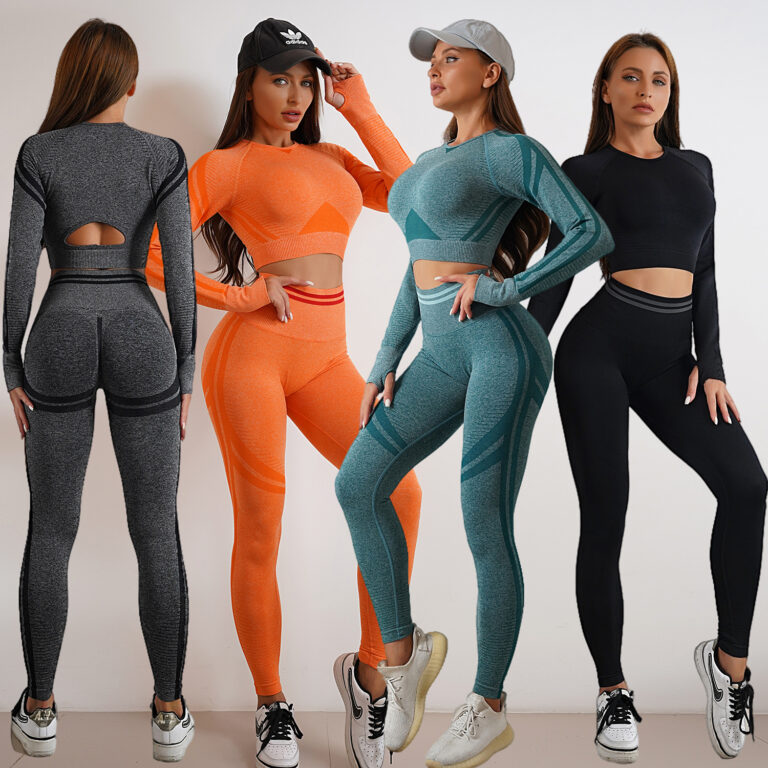
Insulation property
Cotton fiber has good hygroscopic properties, and under normal circumstances. The fiber can absorb water to the surrounding atmosphere. But the heat resistance of cotton fiber is average. Therefore, in the spring and autumn season to wear cotton sportswear will be more comfortable. After the polyester has been modified, there is a cool silk, its composition is polyester. In the hot season, wearing this material sports T-shirt is very comfortable.
Comfort
Cotton is a natural fiber that makes the skin feel more comfortable when worn. Polyester is a chemical synthetic fiber, which is not as comfortable as cotton. However, with the improvement of the process. The wearing comfort of some modified polyester has been greatly improved.
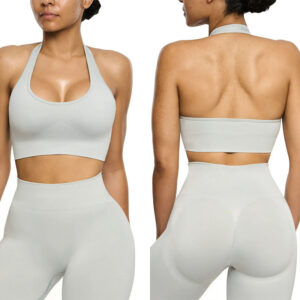
Tend to
Cotton clothes are easy to crease, so each time you wear before ironing. And polyester wrinkle resistance is better, the general clothes are not easy to crease. In this regard, polyester sportswear is easier to manage.
Cost
Cotton fiber is the product of natural growth, and the annual output has a lot to do with the weather. Polyester, on the other hand, is derived from petroleum, making it easier to control production. Of course, the price of polyester is also related to the ups and downs of oil prices. But in general, the cost of cotton is higher, so the market price of cotton sportswear is higher.
Weight
In terms of weight, cotton is a little thicker than polyester clothing. And some polyester T-shirts are lighter.
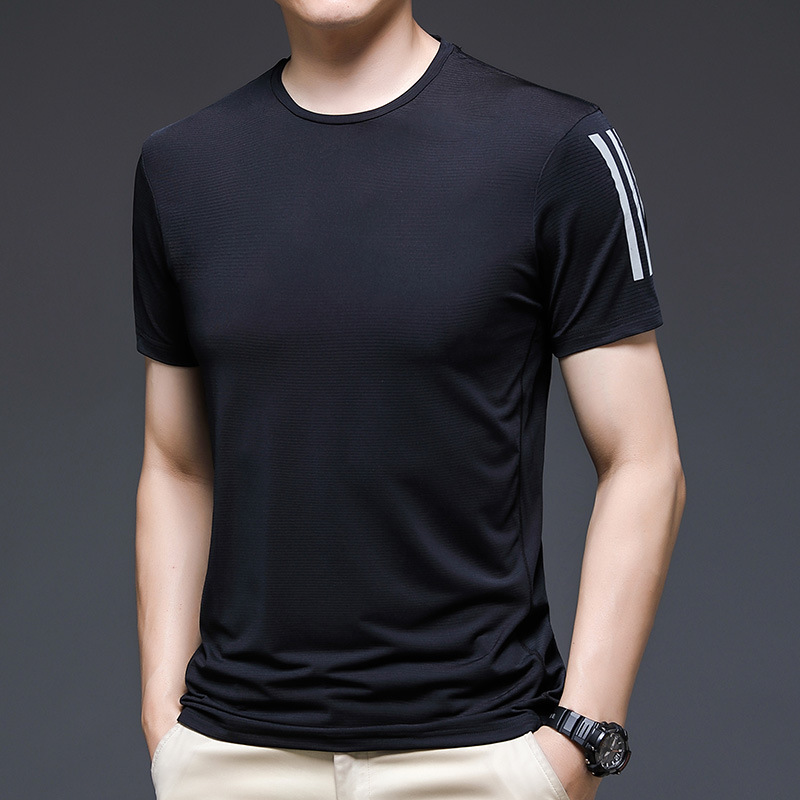
Through the comparison of the above six points. I believe that the difference between cotton and polyester has a certain understanding. Of course, in addition to all cotton and polyester materials, there are also sports apparel made of cotton-polyester blended. Or ton-polyester interwoven fabrics. However, from the current development trend of sports apparel. More and more polyester components are used. Because the functional improvement on the polyester material is more and more convenient. Such as cool fiber, moisture absorption and fast drying fiber, these have been widely used. It is believed that in the future, new functional fibers will be more and more.
What is sportswear fabric?
Sportswear fabric is a type of clothing that is designed to be worn when participating in sport or exercise. It is generally made from a combination of materials, including cotton and polyester. Although there are some brands that use other materials such as nylon or lycra. Sportswear fabrics tend to be light, breathable. And soft so they don’t restrict movement during physical activity. What are the different types of sportswear fabrics?
There are several different types of sportswear fabric available. The most common types include:
-Cotton/polyester blends (usually around 50% cotton and 50% polyester)
-100% polyester
-100% cotton
-Nylon, which is often used for bike shorts and swimming costumes.
-Lycra/spandex blends, which are stretchy and provide a lot of support for high-impact activities. Such as running and cycling.
How do you care for your sportswear? When you buy new sportswear it’s important to wash the item before wearing. It so that dirt or chemicals don’t rub off onto your skin. After washing the garment, be sure to hang it up and let it air dry. This will help maintain the shape of your clothing and reduce the risk of shrinkage.
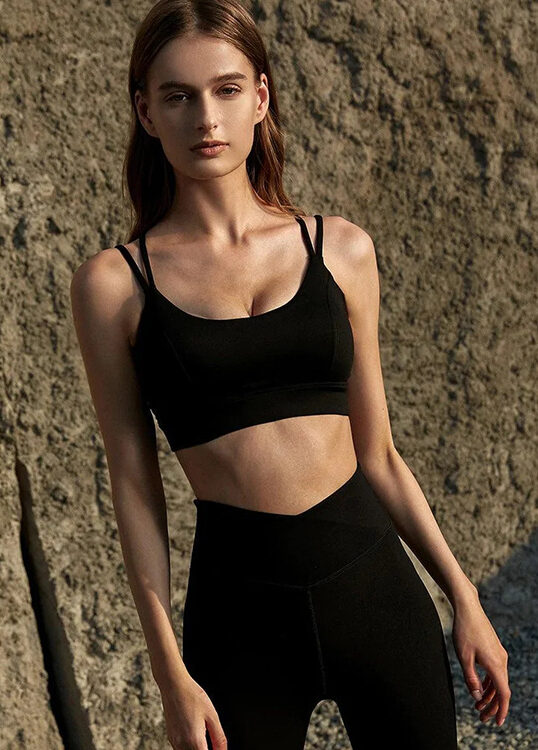

Cotton
Cotton is the most common material used to make sportswear fabric.
It’s breathable and lightweight, which makes it ideal for warm climates or hot summer days. It’s also soft, comfortable and easy to care for.
Cotton is a natural fiber made from the cotton plant. It’s strong.Durable and highly absorbent — which makes it ideal for creating sportswear fabric that can withstand wear and tear. Thanks to its moisture-wicking properties, cotton also helps to keep you cool on hot days.
Cotton’s biggest downside is that it absorbs water, which makes it feel heavy and clingy. This can be a problem when you’re working out or playing sports — especially in humid weather. Cotton also doesn’t dry quickly, so if your cotton sportswear fabric gets wet. It may stay damp for several hours.
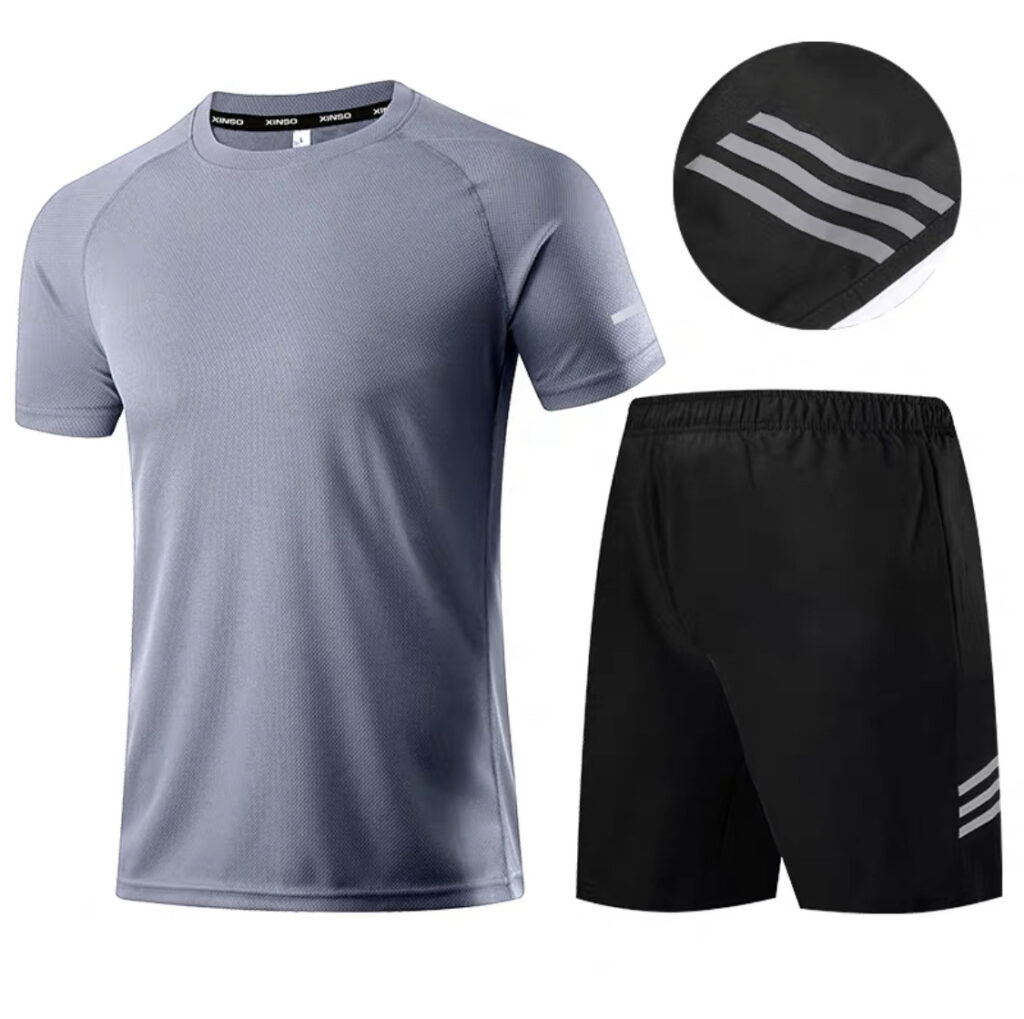
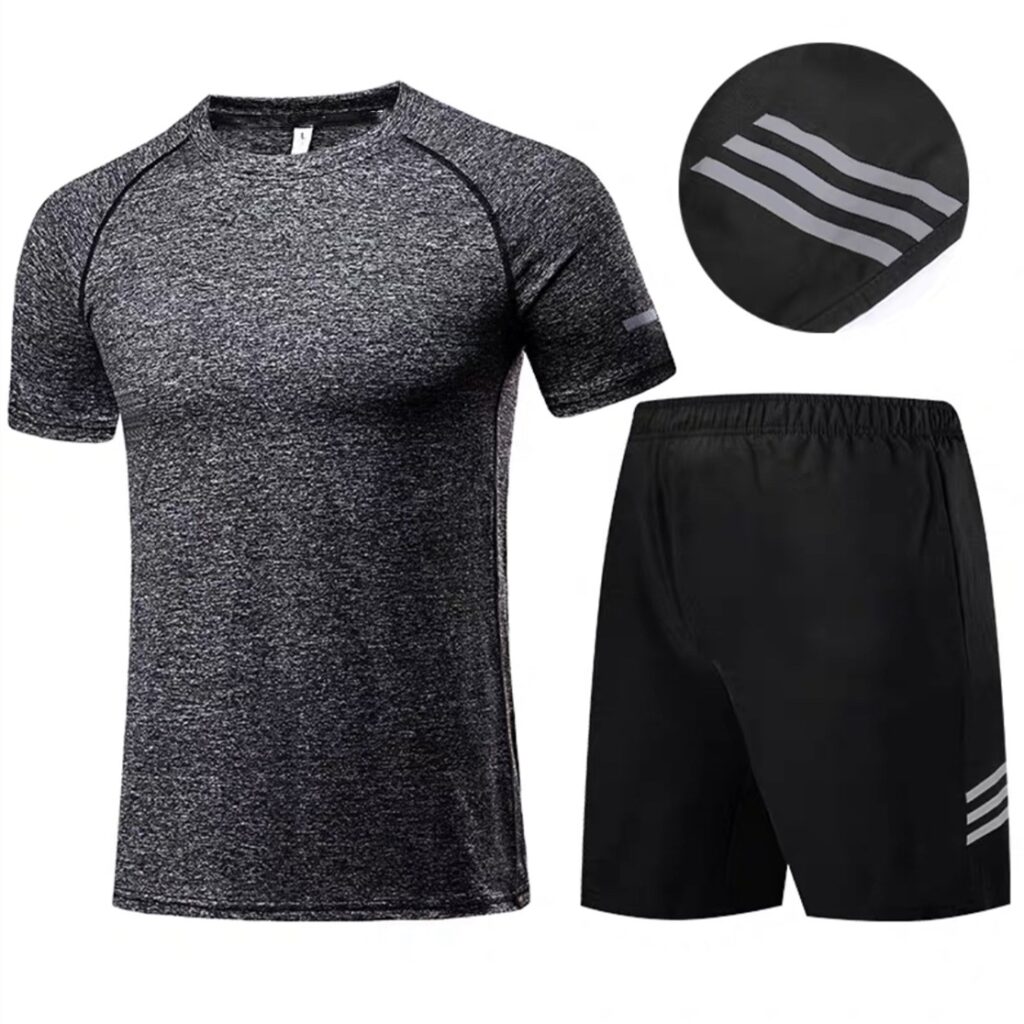
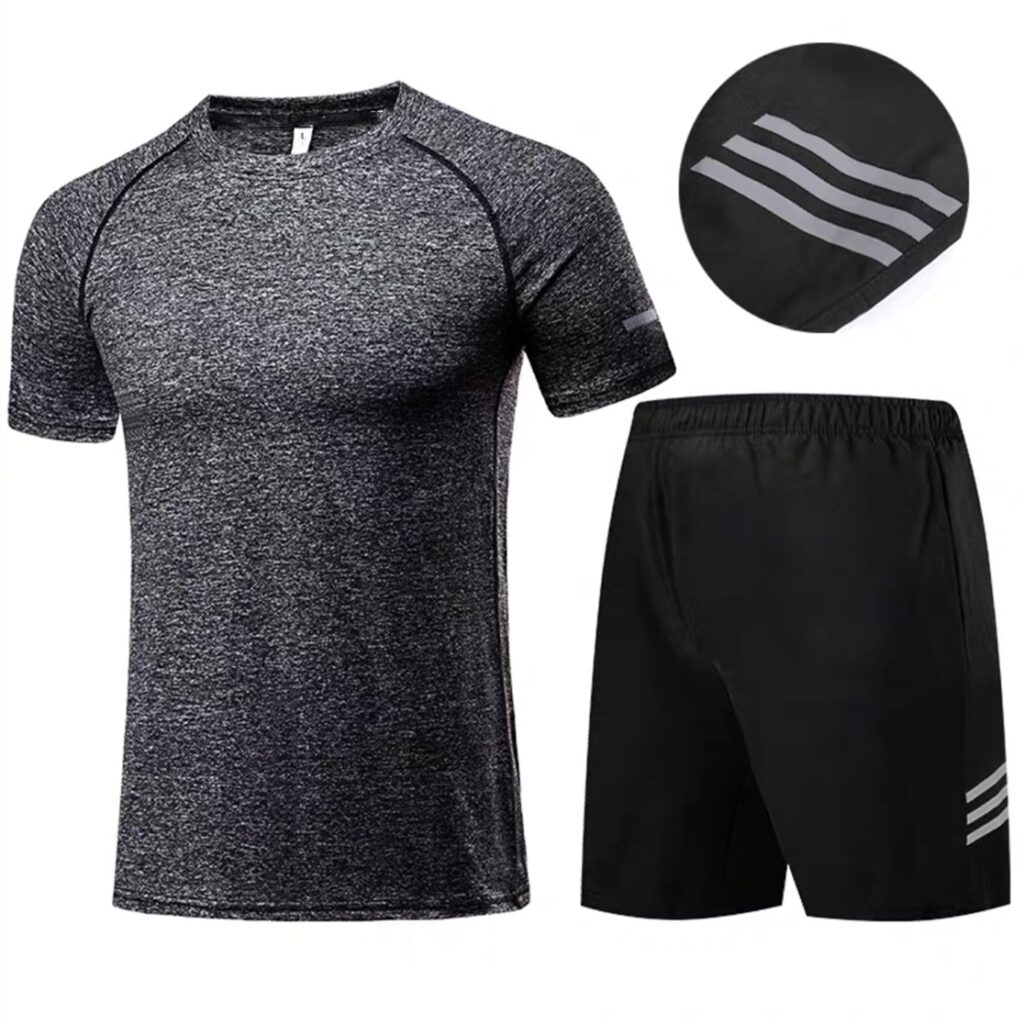
Polyester
Polyester is a synthetic fiber made from petroleum.
It’s lightweight, durable and quick-drying.Which makes it ideal for creating sportswear fabric that can withstand wear and tear. Polyester also wicks moisture away from your skin to keep you cool on hot days. The biggest downside of polyester is that it doesn’t breathe as well as other fabrics (like cotton). This means that when you sweat in polyester clothing. The moisture can build up inside the material.
This can lead to uncomfortable chafing. Polyester also tends to pill when it gets worn. Which makes it look old and worn out over time. The good news is that polyester sportswear fabrics are more likely than cotton ones to be stain-resistant. That means they’re less likely to fade or discolor when exposed to sunlight or chlorine from swimming pools.
There are a few different kinds of polyester sportswear fabric. The most common is called microfiber. Which is an extremely fine yarn made from thousands of filaments twisted together. This makes it super smooth and soft to the touch. Another kind is called pique knit, which has more texture than microfiber.
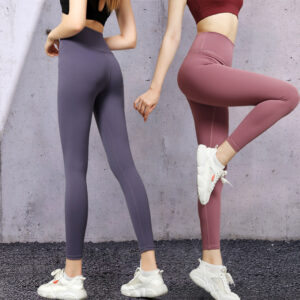

Maxtop Sourcing China Sourcing Agent helps thousands of small business owners, dropshippers,amazon store owners, wholesalers,retailers, contractors to select,order,inspect,quality control,store, pack, label, and deliver. Making orders fullfilling smoothly and service beyond the quality.
 Online | Privacy policy
Online | Privacy policy